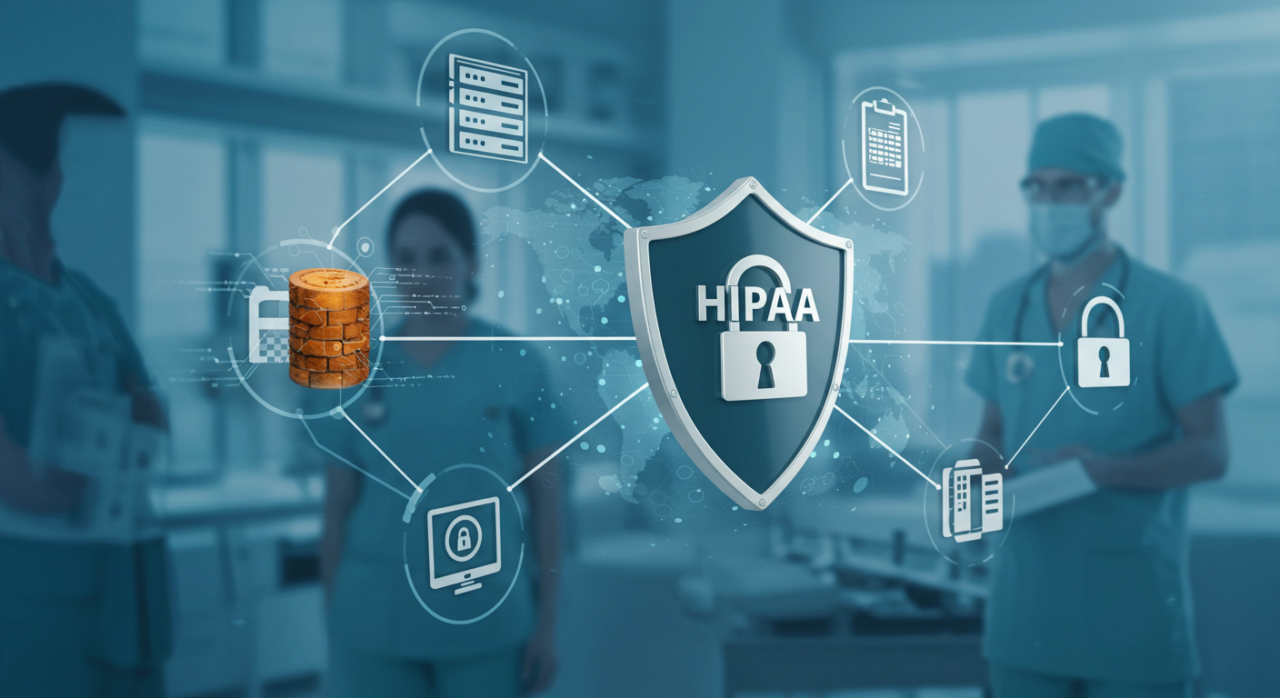The HCBS Industry is a Top Target for Ransomware Threat Actors
Cybersecurity in healthcare, particularly within Home and Community-Based Services (HCBS), involves protecting sensitive patient information, ensuring compliance with regulations, and maintaining operational integrity amid growing reliance on digital health technologies. Moreover, healthcare providers must prioritize cybersecurity to mitigate these threats, as ransomware attacks on this sector aren’t just financially damaging but pose serious risks to patient health and safety. Let’s discuss this in further detail:
Data Privacy and Protection:
- HCBS providers handle personally identifiable information (PII), protected health information (PHI), and electronic health records (EHRs).
- Compliance with regulations such as HIPAA in the U.S. or GDPR in Europe is critical.
Risks and Vulnerabilities:
- Remote Access and Telehealth: Increased use of telemedicine, remote monitoring, and mobile devices elevates cybersecurity risks.
- Ransomware and Malware Attacks: Cybercriminals frequently target healthcare systems, disrupting care services.
- Phishing and Social Engineering: Staff members, caregivers, and patients themselves can fall victim to cyber attacks.
HCBS Security Best Practices:
- Encryption: Data encryption (both in transit and at rest) is crucial for protecting sensitive healthcare data.
- Secure Authentication: Strong password policies, multi-factor authentication (MFA), and secure remote access technologies.
- Staff Training: Regular cybersecurity training programs to help staff recognize threats and respond appropriately.
- Incident Response Plans: Developing robust protocols to quickly manage cybersecurity breaches and minimize disruption.
Technology and Tools:
- Endpoint Protection: Using antivirus, antimalware, intrusion detection systems, and regular software patching.
- Network Security: Secure network infrastructure, including VPNs and firewalls, especially when caregivers access systems remotely.
- Cloud Security: Ensuring secure storage and processing of healthcare data on cloud platforms.
Challenges Specific to HCBS Providers:
- Distributed Environment: HCBS typically involves caregivers and patients in multiple locations, complicating cybersecurity management.
- Resource Constraints: Smaller HCBS providers may lack extensive resources for cybersecurity.
- Device Security: Managing security risks associated with wearable and IoT medical devices used at home or in community settings.
How Healthcare Providers combat these Security Threats:
- Risk Assessment: Regular evaluations to identify and mitigate cybersecurity risks.
- Third-party Risk Management: Monitoring and vetting third-party technology and service providers for compliance and security practices.
- Collaboration and Coordination: HCBS providers should coordinate with cybersecurity experts, regulators, and industry partners to adopt best practices and stay informed about emerging threats.
In Conclusion:
It is imperative that service providers in the HCBS Healthcare Industry continue to be vigilant and put in place cutting-edge security protocols to keep up with the ever-changing tactics being developed by Ransomeware Groups. Furthermore, here at HCBS Provider we have already implemented these security protocals through our Partnership with RootKit Defense Cybersecurity.
Here is a small summary of the Rootkit Cybersecurity Services.
- Advanced Asset Protection: Safeguarding servers, databases, endpoints, and network devices with robust protection strategies rooted in the NIST framework.
- Real-Time Threat Monitoring & Rapid Response: Leveraging machine learning to provide real-time threat detection and immediate response,
- Data Recovery and Incident Management: Minimizing damage with strategic data backup, swift recovery, and post-incident analysis if a security incident occurs.
- Compliance and Trust Building: Built-in compliance by ensuring adherence to key industry HIPAA standards.

